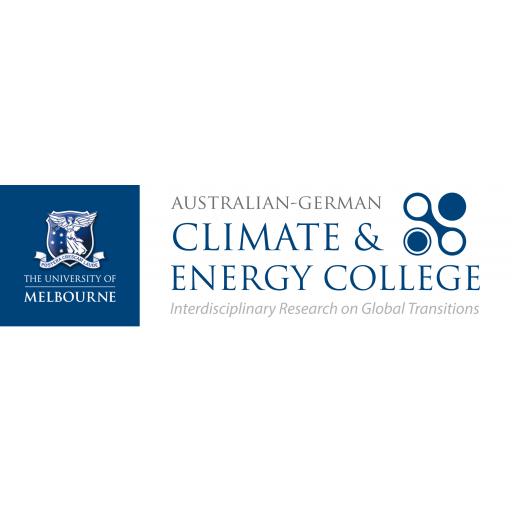Australian-German Climate & Energy College

The Climate & Energy College at the University of Melbourne is an international team of early career researchers. The College conducts climate and energy systems research in an interdisciplinary environment, advancing knowledge and informing responses to the complex challenges of climate change.
We are a world-class research hub located at the University of Melbourne collaborating with leading Australian and German research institutions. Our research is centred on:
Climate Change: Advancing understanding of climate system processes and assessing related impacts, through observational and modelling-based methods. Key research areas include climate projections, extreme events, impacts on ecosystems, agriculture and health, as well as vulnerability and resilience assessments.
Energy Transitions: Assessing the technical and social dynamics of regional and global energy systems, through research projects investigating the opportunities, technological challenges, implementation barriers, market designs, and economics of a transition towards a decarbonised energy system.
The scope of the College includes science, engineering, governance, policy, and law, cutting across climate change and energy transitions research. This includes examining global and regional emission pathways and mitigation strategies, equity, carbon budgets, trade, finance, mitigation costs and opportunities of different climate change response options.
The College offers PhD candidates the platform to pursue research in climate change and energy transitions in a multidisciplinary framework, alongside leading researchers in their respective fields. The Collegefacilitates opportunities to develop research collaborations at partner institutions overseas.
The Climate & Energy College is more than a research platform. It is an immersive environment active in policy relevant discussions on a local, national and international scale. It makes submissions to public inquiries, provides input to international climate negotiations, engages with media, undertakes fact checks, and conducts commissioned research for public, private sectors, and civil society groups.
These extensive opportunities prepare our scholars for a diverse range of career pathways and facilitate participation in global professional networks.

